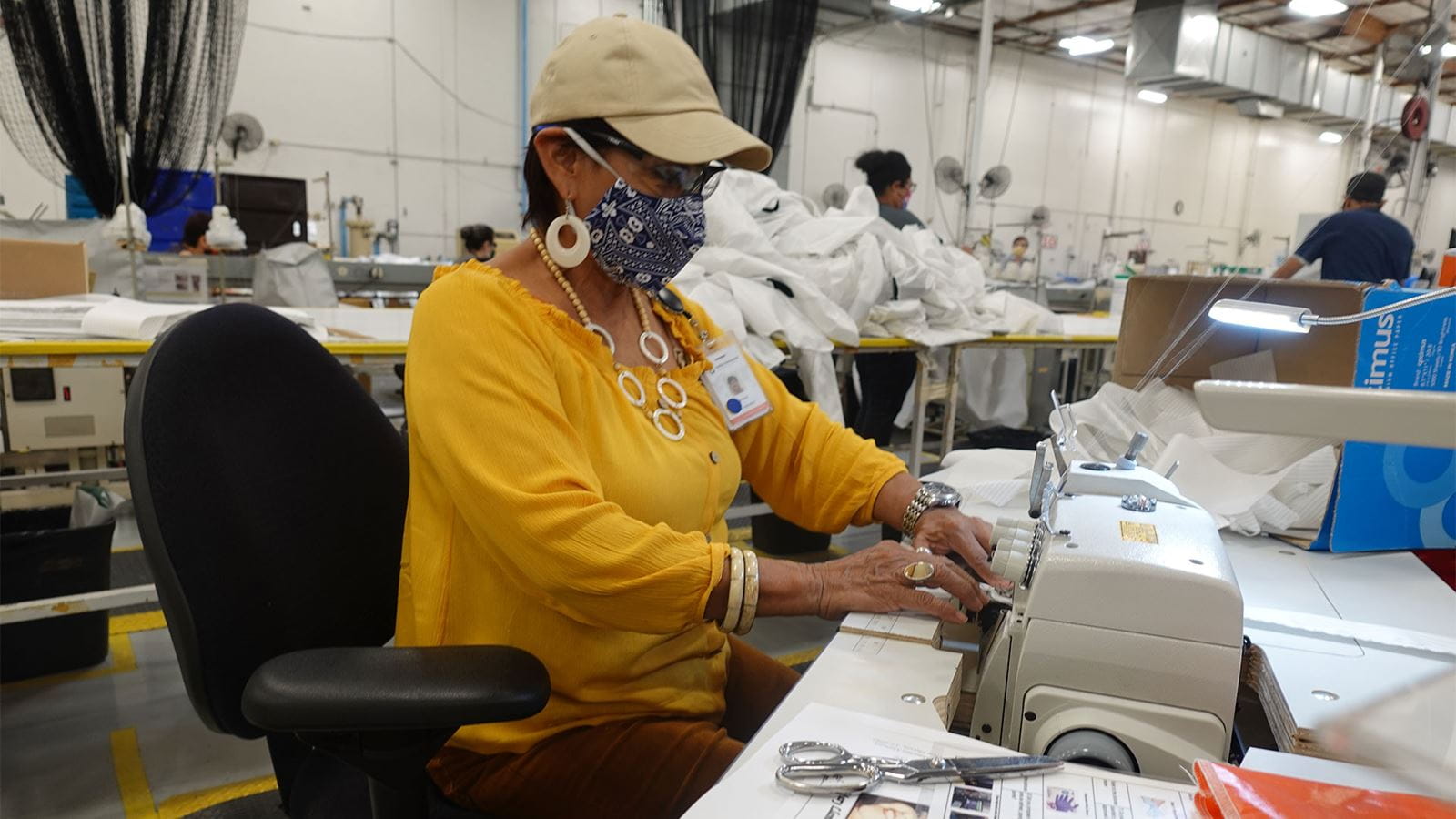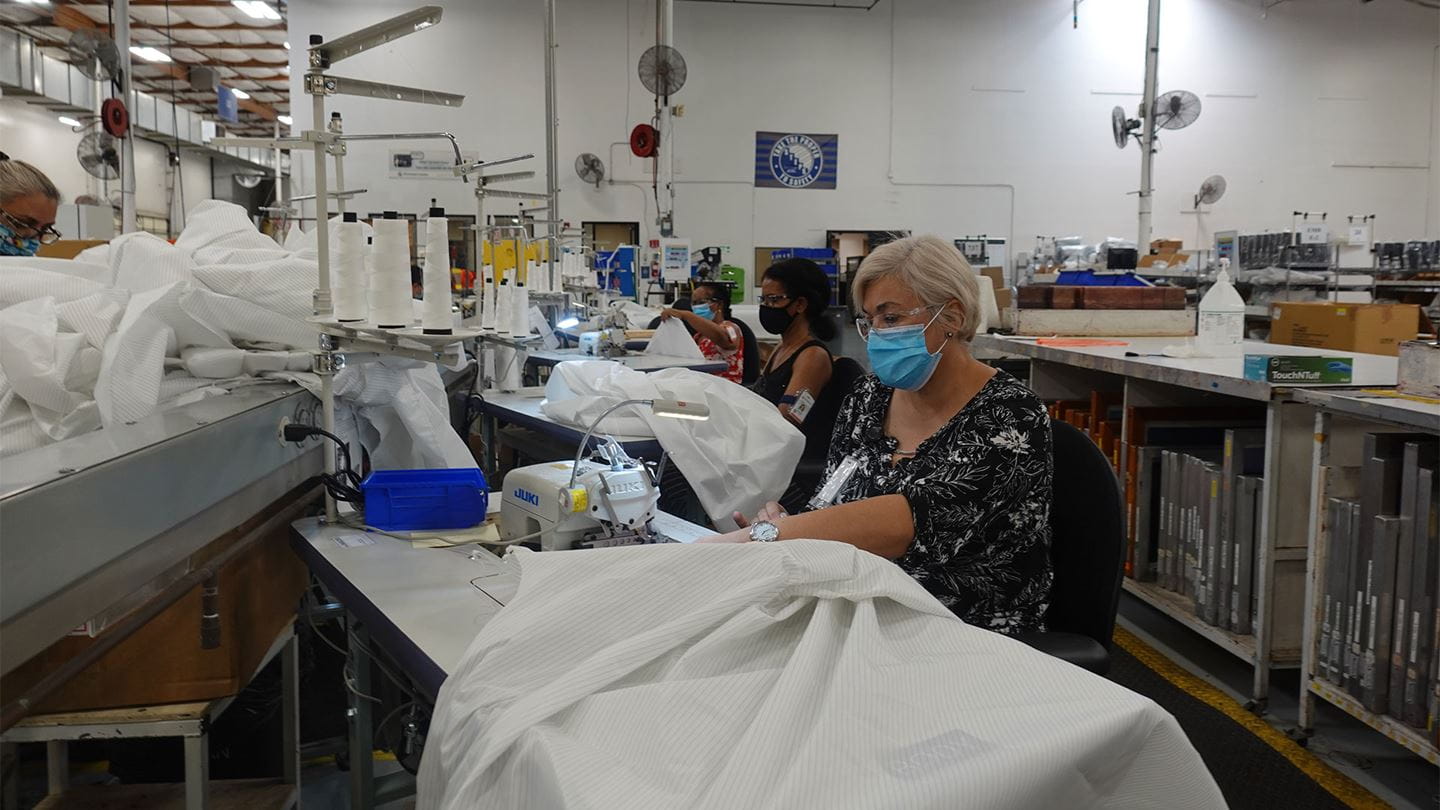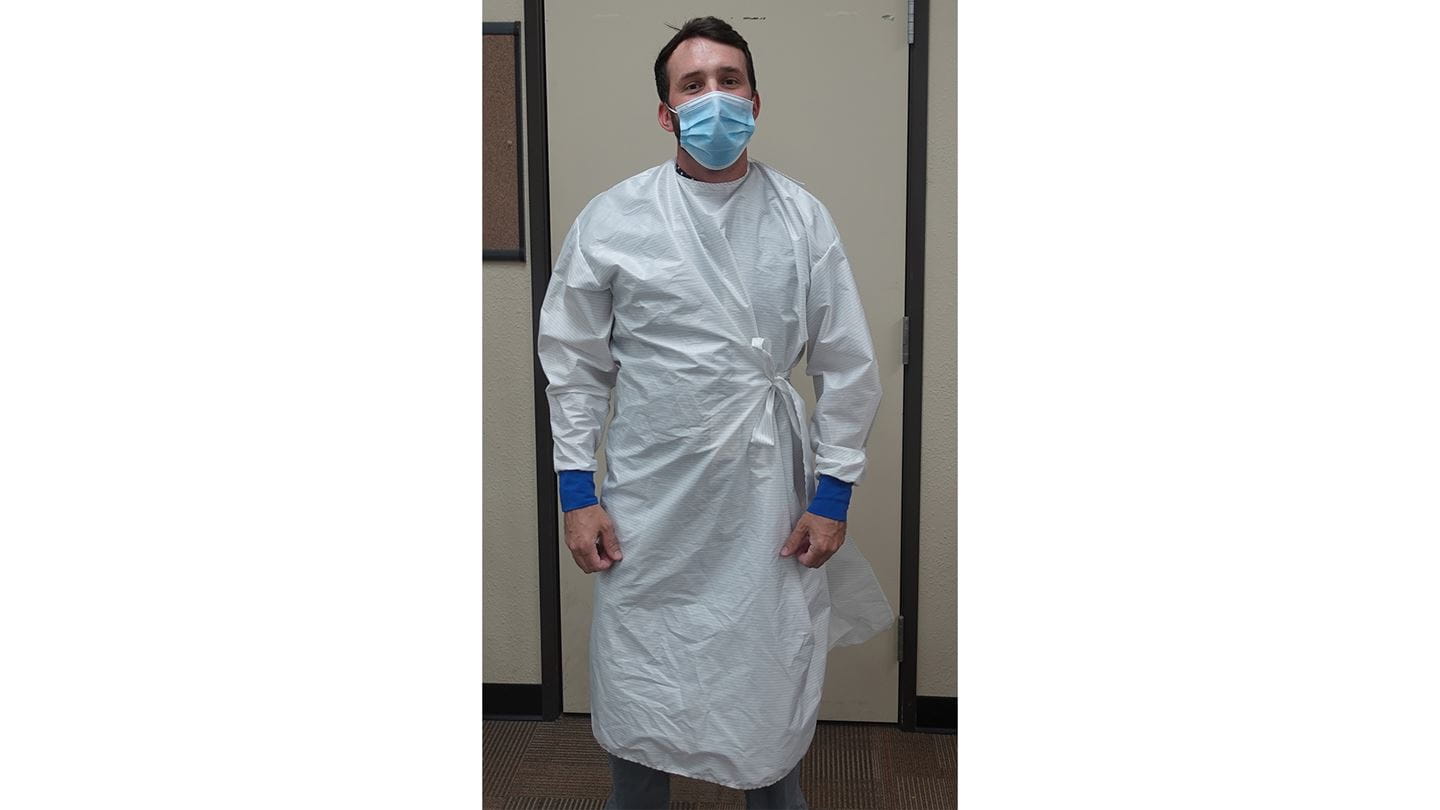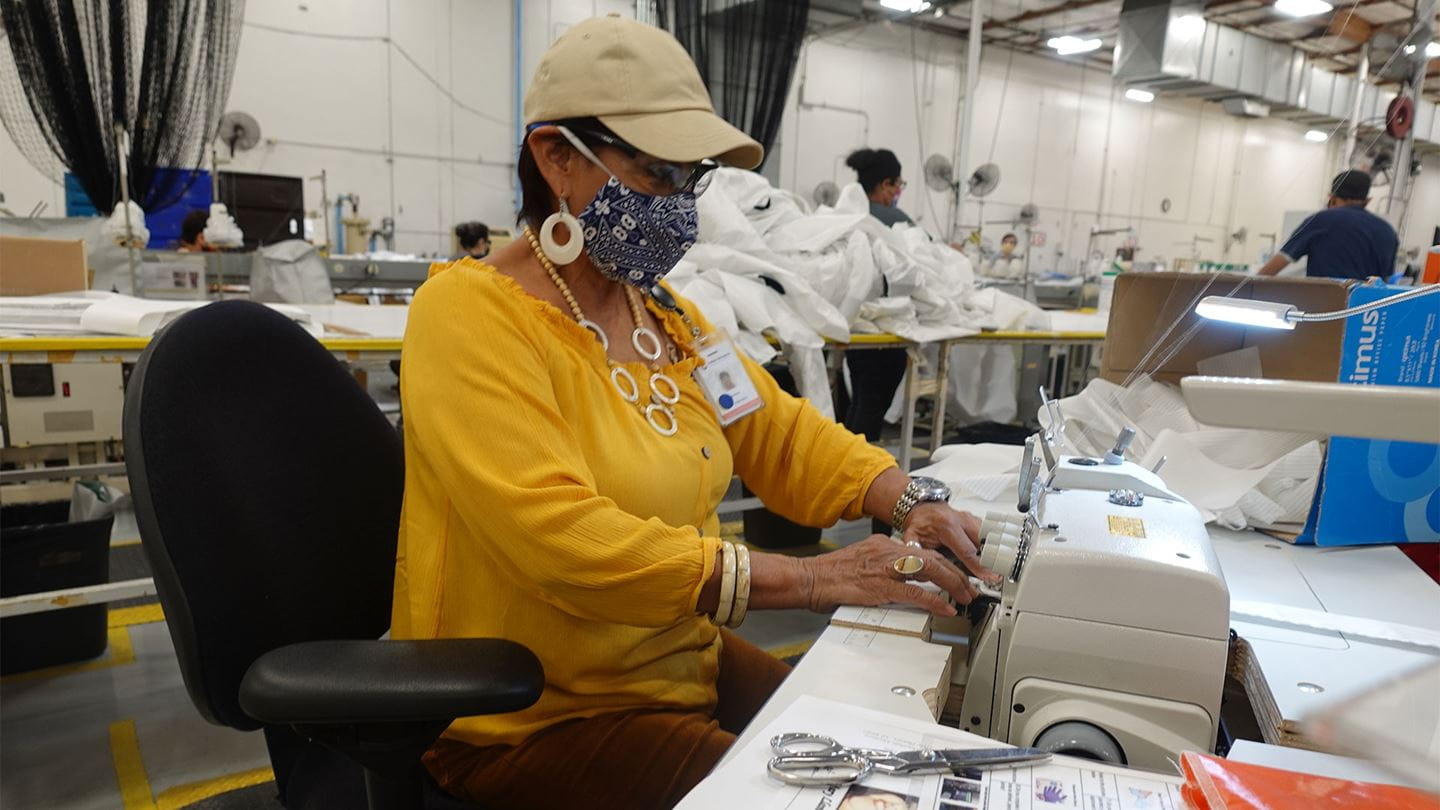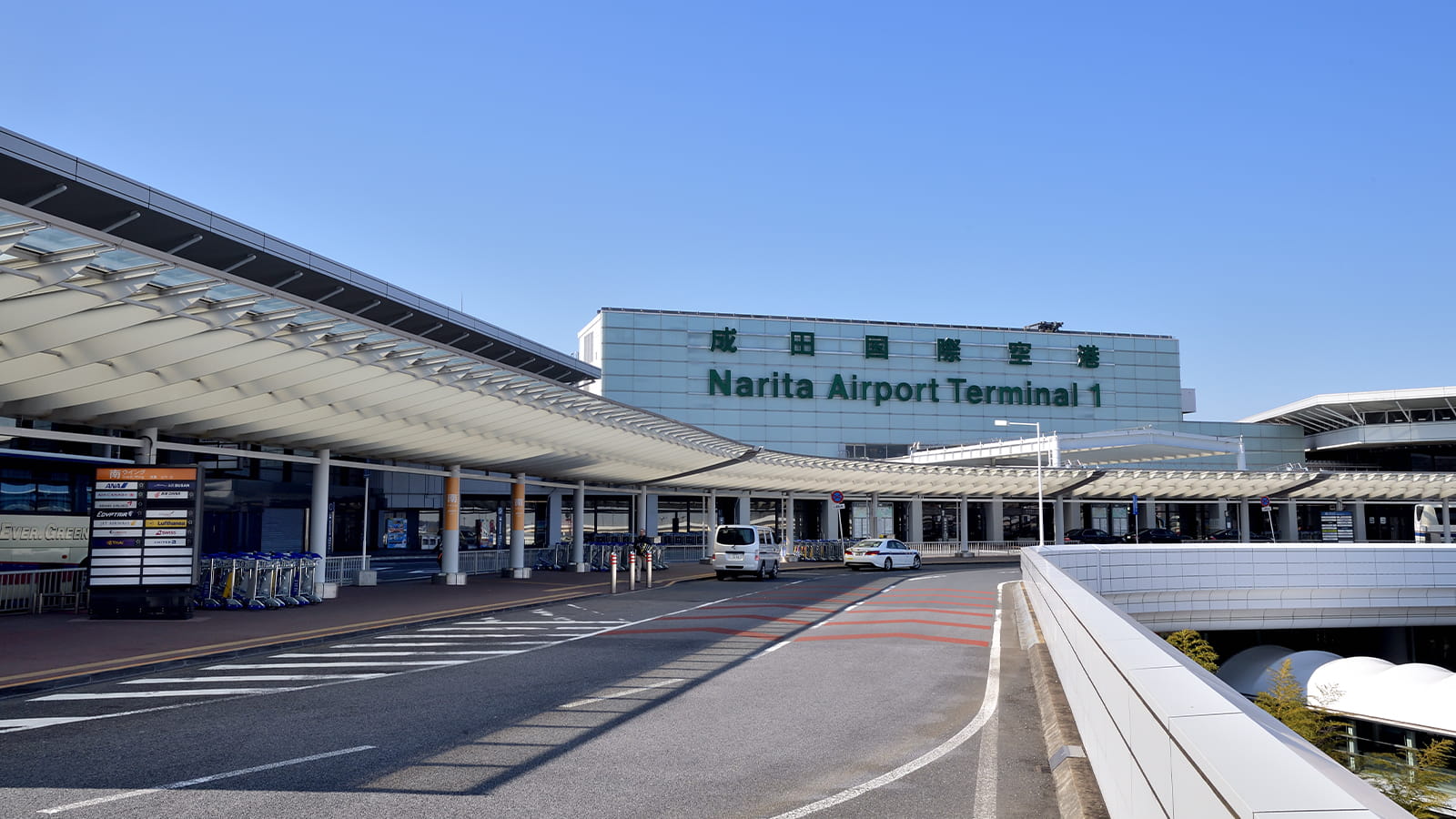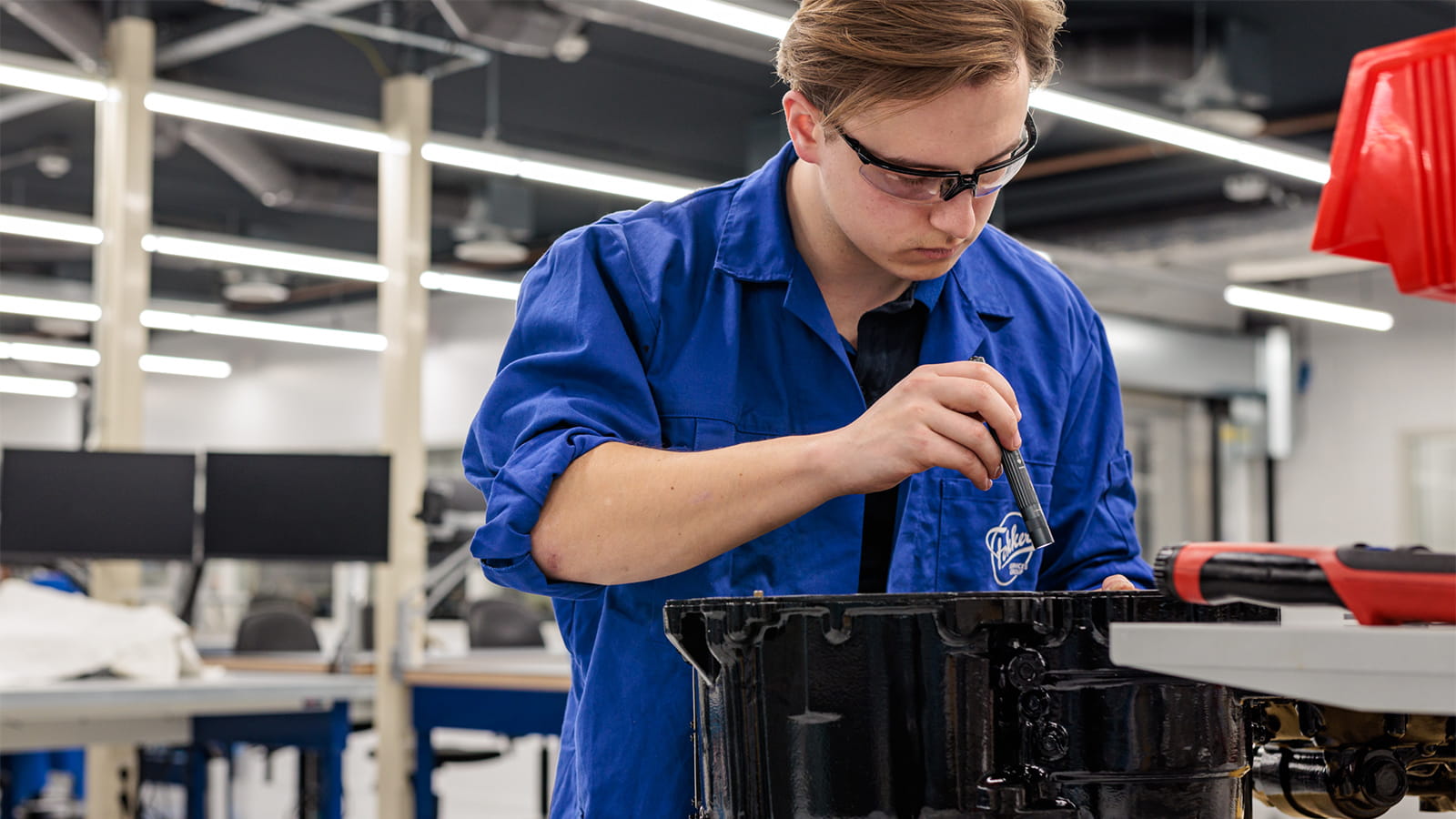Copy, paste and...sew? Fashioning a fallback plan
On March 30, 2020 then United Technologies CEO Greg Hayes stood on the steps of the Rose Garden, just outside the White House in Washington, D.C., and announced to the world Collins Aerospace had joined in the fight against COVID-19. In the days and weeks that followed, dozens of Collins sites began preparations to help in the manufacture of personal protective equipment (PPE). Stories, images and video poured in from our sites around the globe - our people were doing amazing work to help each other, their neighbors and complete strangers.
Our Phoenix, Arizona site, which produces inflatable evacuation systems for commercial aircraft, was one location selected to help. General Manager, Mayon Neal, and his team coordinated with local officials and health organizations in preparation for the work. Eager to help, they pulled together a plan - including critical contacts and the materials needed to begin production. And then, as sometimes happens - the plan just fell through. The logistics just weren’t working out.
“It would have been easy for us to throw in the towel at that point, but that’s not the spirit or the character of the people who work at this site,” said Mayon. “So we kept pushing forward, kept knocking on doors and leveraging the resources we had until we could find a way to help make a difference. A way to help our community.”
That perseverance paid off.
The Collins government relations team put Mayon in contact with the state of Arizona and in turn, the state connected Mayon with an unlikely project partner: a local fashion designer by the name of Sherri Barry.
Sherri and co-founder Angela Johnson established the Fashion and Business Resource Innovation Center (FABRIC) in nearby Tempe, Arizona in 2016.
“We’re a non-profit fashion incubator where apparel entrepreneurs can grow their abilities and their businesses,” says Sherri. “We educate, mentor and allow designers to utilize our co-working spaces, classes and other resources to help further develop their craft from initial concept all the way through to sold.”
So how does FABRIC and a place that makes evacuation slides for aircraft effectively partner during a pandemic?
“There are actually a lot of adjacent capabilities between our two markets,” said Mayon. “Cutting, gluing, taping and sewing are the underlying fundamentals of textile work no matter if you’re making dresses or evacuation slides for commercial aircraft.”
When the pandemic hit, FABRIC shifted its focus to help mitigate the PPE shortage by partnering with government and local healthcare providers to make reusable medical gowns for healthcare facilities and first responders. FABRIC figured out the design and had the necessary material but needed to use the manufacturing chops of companies like Collins to help sew the gowns together.
In short order, FABRIC and Collins agreed to produce 15,500 washable medical gowns - each reusable up to 100 times - for one of the largest healthcare providers in the region. And that number could grow to as many as 100,000 - far more PPE than our Phoenix site would have produced under the original plan.
“I’m excited about it,” said mechanical assembler Teresa Hernandez, who has been working on the gown production line. “It’s nice to be able to give to others and to provide these gowns to people who need them.”
It is nice to help others in times of need. Fortunately for all of us, there are people like Mayon, Teresa, Sherri and countless others that don’t flinch when a plan falls through. They press on and look for new ways to achieve their goals. And sometimes, they make an even greater difference along the way.

